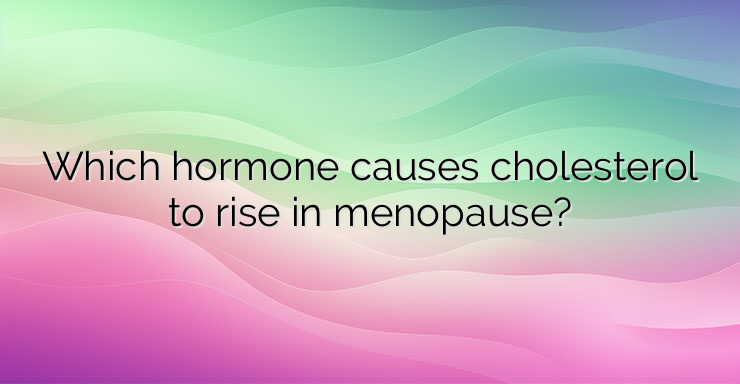With the onset of menopause, an increase in blood cholesterol is also observed. The main reason for this is the lowering of estrogen levels due to cessation of ovarian functions. However, it has not been fully understood whether female sex hormones are the sole cause of the increased cardiovascular risk in postmenopausal women. Scientists at the University of Pittsburgh have identified the action of another key hormone that affects blood lipid levels in middle-aged women: anti-Müllerian hormone. The results of the study were published in the Journal of Clinical Lipidology. At age 40, men have a higher risk of heart attack, but at age 50, this risk levels off. Before, during and after menopause, blood cholesterol levels increase significantly. Hormone replacement therapy is a primary treatment of choice for menopause because of its many benefits, including lowering cholesterol. However, it was found that this treatment did not have such a significant therapeutic effect in reducing cardiovascular risk, so the scientists focused on the analysis of other factors that influence cholesterol levels. Anti-Müllerian hormone is a key factor in determining fetal sex during intrauterine development. It is also thought to be able to provide information about the timing of menopause. Levels of this hormone can be used to measure how long the ovaries will continue to release eggs. The more oocytes – immature eggs there are, the higher the levels of anti-Müllerian hormone. Conversely, low levels mean a low number of available oocytes, which is a predisposing factor for the onset of menopause. For the purpose of the study, the scientists examined blood samples from 1,440 middle-aged women in the period of approaching menopause. It was found that if estrogens were important in reducing the levels of “bad” LDL cholesterol, high levels of anti-Müllerian hormone contributed to the reduction of “good” HDL cholesterol. In perimenopausal women, there is a drop in estrogen and amtimüllerian hormone levels. This leads to an increase in both good and bad cholesterol in the blood. High levels of “good” HDL cholesterol are not beneficial for the health of menopausal women. Previous studies have shown that high levels of good cholesterol may make other cardiovascular diseases more difficult to detect. In addition, they can mean impaired action of this type of cholesterol, which prevents the performance of its cardioprotective functions. References: https://www.sabervivirtv.com/ginecologia/hormona-culpable-suba-colesterol-menopausia_7768?utm_source=facebook&utm_medium=social&utm_campaign=trafico https://www.lipidjournal.com/article/S1933-2874(22)00326 -9/fulltext


Leave a Reply